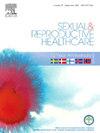Emergency medical technicianś experiences of assignments with women in labour
IF 1.7
3区 医学
Q3 PUBLIC, ENVIRONMENTAL & OCCUPATIONAL HEALTH
引用次数: 0
Abstract
Objective
To describe Emergency Medical Technicianś(EMTś) experiences of assignments involving women in labour.
Methods
A qualitative study with Systematic Text Condensation (STC) for data analysis, as described by Malterud. Ten semi-structured interviews with EMTs in Norway, exploring EMTs experiences during assignments involving women in labour. Participants were recruited via social media and email inquiries to ambulance stations, ensuring a diverse range of travel times to hospitals. Interviews were conducted face-to-face, lasting between 22 and 45 min, and focused on EMTs’ experiences during these assignments.
Results
The findings present three main categories: an unpredictable situation, lack of competence and training, and the desire to provide good maternity care while a sense of falling short. EMTs described assignments with women in labor as unpredictable and stressful due to the potential for rapid changes and complications. They expressed a lack of competence and training in obstetric care, relying on random knowledge and experiences shared by colleagues. Despite these challenges, EMTs demonstrated a desire to provide good maternity care, emphasizing the importance of communication, presence, and adapting to the woman’s needs.
Conclusions
EMTs experience assignments with women in labour as a demanding event, compounded by a perceived lack of competence and training. There is a desire among EMTs to provide quality maternity care, but they often feel they fall short. Enhancing EMT training in obstetric care and providing regular practice opportunities could improve their confidence, and the quality of care provided to women in labour.
急救医疗技术人员与分娩妇女一起工作的经验
目的描述紧急医疗技术人员(emtka)在涉及分娩妇女的任务中的经验。方法采用Malterud描述的定性研究方法,采用系统文本缩合法(system Text Condensation, STC)进行数据分析。对挪威的EMTs进行了10次半结构化访谈,探讨了EMTs在涉及分娩妇女的任务中的经验。参与者是通过社交媒体和向急救站发送电子邮件的方式招募的,以确保他们在不同的时间内到达医院。访谈是面对面进行的,持续时间在22到45分钟之间,重点是急救医生在这些任务中的经验。结果调查结果显示了三个主要类别:不可预测的情况,缺乏能力和培训,并希望提供良好的产妇护理,但有不足的感觉。急诊医生称,由于可能发生快速变化和并发症,产妇的任务是不可预测和有压力的。他们表示缺乏产科护理的能力和培训,依赖于同事分享的随机知识和经验。尽管面临这些挑战,急诊医师仍表现出提供良好产科护理的愿望,强调沟通、在场和适应妇女需求的重要性。结论:semt认为与劳动中的妇女一起工作是一项艰巨的任务,而且他们认为缺乏能力和培训。急救医生渴望提供高质量的产科护理,但他们常常觉得自己做得不够。加强产科护理方面的急诊医疗培训,并提供定期实习机会,可以提高她们的信心,并提高向分娩妇女提供护理的质量。
本文章由计算机程序翻译,如有差异,请以英文原文为准。
求助全文
约1分钟内获得全文
求助全文
来源期刊

Sexual & Reproductive Healthcare
PUBLIC, ENVIRONMENTAL & OCCUPATIONAL HEALTH-
CiteScore
2.70
自引率
5.60%
发文量
73
审稿时长
45 days
 求助内容:
求助内容: 应助结果提醒方式:
应助结果提醒方式:


